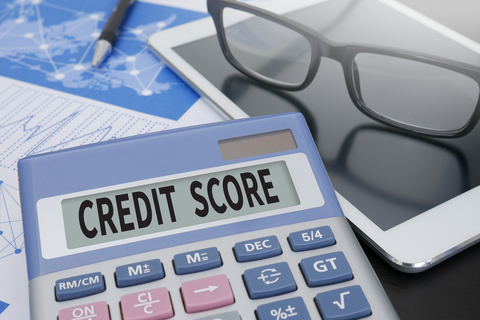 Large businesses rely on the credit ratings of their companies. Small businesses usually have to rely — in whole or in part — on the credit scores of their owners. Consequently, having a good personal credit rating is essential for commanding access to loans for business at favorable rates. But business credit scores shouldn’t be ignored.
Large businesses rely on the credit ratings of their companies. Small businesses usually have to rely — in whole or in part — on the credit scores of their owners. Consequently, having a good personal credit rating is essential for commanding access to loans for business at favorable rates. But business credit scores shouldn’t be ignored.
Importance of a personal credit score
When seeking an SBA loan for your business, all owners with an interest of 20% or more must give their personal guarantee for the loan. They must also disclose the owners’ personal financial history; the personal credit rating of the owners comes into play. The same is true with many other types of small business financing, where both the owners’ and business’s credit history is factored in. This can influence whether a loan is granted and what interest rate will be charged.
FICO vs. VantageScore
The benchmark for personal credit traditionally has been the FICO score, a proprietary rating from Fair Isaac Corp. (hence the name FICO). It continues to be used by 90% of major lenders in the U.S. The score is based on payment history (35%), amounts owed (30%), length of credit history (15%), new credit (10%), and the credit mix (10%). The highest score for most purposes is 850.
A relatively new competitor to FICO is VantageScore, which began in 2006. Newly revised VantageScore 4.0, based on the credit scoring model used by the three consumer credit agencies (Equifax, Experian, and TransUnion), factors in credit behavior over time, rather looking at a single point in time. The revised score will be available for commercial use in the Fall of 2017. Until then VantageScore 3.0 will be in use.
Other personal credit ratings
FICO and VantageScore aren’t the only ratings, although they are used most commonly for business owners seeking credit. Other ratings include:
- Experian’s PLUS score
- Equifax Credit Score
- TransUnion New Account Score
Business credit ratings
If you ever want to shift the criteria for obtaining a loan from your personal credit history to your company’s credit history, you must build your business’s credit so it can be reviewed by lenders. There’s another compelling reason to have a good business credit rating: many large companies check a vendor’s score before agreeing to do business, so if you want to work for these companies, your business needs a good credit score. The sad thing is that the majority (72%) of small business owners don’t even know their business credit score and 60% don’t even know where to look for it, according to a Manta survey last year.
There are a number of rating companies for business credit, but the leader is Dun & Bradstreet, or DNB; it’s PAYDEX is the measurement. There’s also a FICO SBSS Score, which is a credit score specifically for small business. The source to see it is NAV. NAV offers a free option as well as monthly plans to help you build and track credit for your business.
Because many of the vendors you do business with may not report to credit rating companies, you may have to take a proactive approach to building up your business credit. For example, DNB’s CreditBuilder can help with credit building.
Resources
You can view your personal credit score and report, along with your business credit summary reports, from NAV. You need to set up an account, but there’s no charge for obtaining this credit information. Also, listen to my radio interview with Gerri Deitweiler from NAV — we discussed business credit.


